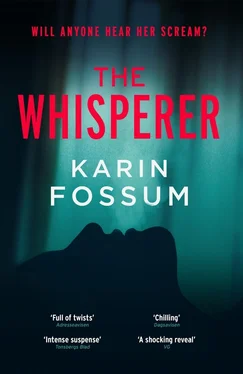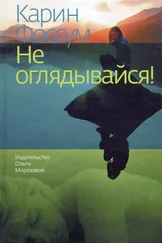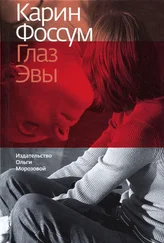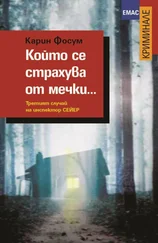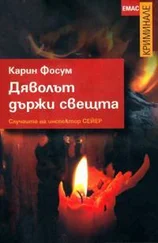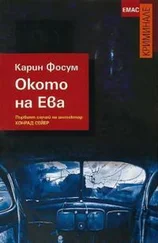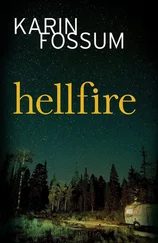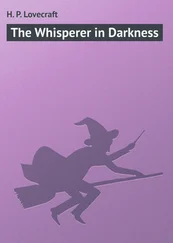There’s a small cafe in the prison that we call Plötzen which is open for a few hours in the evening. I don’t often go there, but every now and then I go down to get a cup of coffee, or something else I can take back to my cell. The cafe is run by a girl, and there aren’t many of them in the unit. Not that that particularly bothers me, but sometimes it does good to hear her voice, which is high and bright, like I remember your voice was. I realise that young Peter also has quite a high, girlish voice. Just like all the other inmates, he’s found a survival strategy, you have to. He’s the youngest here, and the thinnest, so the most vulnerable. He thinks before he speaks. Behaves like an angel, is quick to lower his eyes. No one lays a hand on him. There are not often fights, more verbal disagreements, which blow up out of nowhere, but then subside before they turn into violence. None of the men in my unit are violent. Most of them have something that gnaws at them, they have secrets, but then we all do. You too, Mutti. It’s a human right to have secrets. Something we carry deep inside, that we will carry to the grave, and that’s the way it should be, I think .
I don’t know what you must be thinking as you read this. Maybe you hope that one day I’ll come home, or come to visit you in prison, if I get out before you. But I will never move back to Kirkelina, you must understand that there is nothing for me to come back to. And as for us, well, the future will tell, but we won’t ever share that future. Is that what you sit there dreaming about, and now I’m crushing your dream?
It’s nearly dinner time here. The chef is good, a Chinese man, but he doesn’t beat the chef at the Dormero. As staff, we used to eat in the kitchen whenever we had the chance, we’d lean against the metal counters and worktops and help ourselves to the heavenly food. But those days are long gone. So much belongs to the past now. So, I’m going to go down to the canteen and find myself a place. Maybe you eat on your own in your cell. As I remember you, you would probably prefer that .
Greetings from your son ,
Rikard Josef
Ragna folded the pages and held them to her chest, over her beating heart. She tried to feel her son’s pulse in the thin paper, to hear his breathing.
She had a very clear image of him sitting in his cell at a desk by the window. He was sitting there writing to her. But she could only see his back and neck, not his face, she could not get hold of it, had no idea of what his face looked like as a grown man. When she played in her imagination, she saw brief glimpses of her father, his straight nose, his thick, black brows. Or she saw Walther’s square jaw and high forehead. She was certain that Rikard had thick, beautiful hair and was not stuck with her wispy thin bird’s nest. He would be tall and broad, she reckoned, with muscles from all the hard training. Goodness, he must be so handsome. She sat for a long time with the two pages to her heart. They nourished her soul. The words penetrated in through her skin, passed her ribs, joined the bloodstream and flowed straight to her heart, she could live on this for a long time, a long time! But after a while, other thoughts started to jostle for attention, his words echoed in her head.
‘ If we actually lived in the same world. It’s a human right to have secrets. You would probably prefer that .’
She suppressed these thoughts that were clamouring to be heard, put the letter in its envelope and stowed it in the desk drawer with the first letter. She wished she had a ribbon or a cord that she could tie round them, as the number grew and became a pile, because she knew that they would. Valuable letters should be held together by something, preferably a ribbon, if only she could get hold of one.
When she had her dinner a couple of hours later, she was reminded of the Chinese chef at Plötzensee Prison. She imagined that he was small and round, with smiling eyes and square hands.
There were a handful of pale meatballs on her plate, floating in a cream sauce, with boiled vegetables and mashed potatoes. There was a glass of water, too, and a small dish of lingonberry jam.
‘Who makes the food here?’ she asked.
The guard had to think, and then remembered that it was a woman called Gerd.
‘Do you like it?’ he asked.
‘It’s all right,’ she whispered, and looked up. ‘But the only thing that tastes of anything is the lingonberry jam.’
She gave a humorous smile — after the letter from Rikard, she could afford to.
‘Not everyone is happy,’ the guard told her.
He obviously remembered something and grinned.
‘We’ve had some people here who threw their trays against the wall,’ he told her. ‘And others who didn’t dare eat because they thought the food was poisoned. Or full of ground glass.’
He roared with laughter.
‘Believe me, they often had good reason to think that someone was after them.’
He winked at Ragna and went over to the door.
‘But I guess there’s no one after you, so you can just enjoy it.’
She heard the irony in his voice and flushed with anger. The door slammed shut and his steps retreated.
She stabbed a meatball with the fork and considered what he had said. Sooner or later she would leave this cell and have to eat with all the other inmates at big tables. She did not know if she could face that, as there would be a lot of noise: voices, and the clinking of glasses and cutlery. No one would hear her. Not that she would have anything to say. She would much rather be where she was and eat at the desk. This was how she wanted it to be.
Whoever it was outside continued to knock. At first it was just one knuckle, but then he used his whole hand. He was insistent. Why did he not draw the conclusion that she was out? To be fair, he would have seen from the road that all the lights were on, but still, when no one answered, there was a reason. It was a Sunday, so he was not a salesman. Ah, she thought, maybe it was some children selling raffle tickets, it was soon Christmas. She might win a cake or some smoked salmon. But a child would not hammer on the door like that, it had to be an adult. A man. Who was not going to give up. He stopped at intervals for a few seconds, then started again. She would just ignore him. This was her house, her castle, and he was not even a friend, she had no friends. And the people who did know her would never show up unannounced on a Sunday. But he kept knocking. It might be the minister. What if Rikard Josef was dead? Perhaps he had been killed in a car accident in Berlin — that was why she had not been able to get hold of him. Strange that she had not thought of that before. A cold hand gripped her heart and she found it hard to breathe. She tiptoed into the hall; the man out there must not hear her, must not hear her heart that was pounding as loudly as he was knocking. She could see a dark shadow through the frosted-glass window. When he knocked again, she thought it sounded weaker. Perhaps he was about to give up. But if she did not open the door, he would only come back, she was sure of that, maybe later in the day or the following day, or the following night. He was out to get her. She could open the door, look him straight in the eye and ask what he wanted, in a sharp, deadly voice. She had to laugh at herself. She could never come across as sharp and deadly. She put her hand on the door handle and wondered if he could see her shadow through the glass, as she could see his. She guessed so, he had stopped knocking and was waiting now. She thought about the minister again. Perhaps he had come to tell her that her son had had a heart attack and that he was in intensive care. It was not surprising really, given how much responsibility he had in the hotel. She opened the door ever so slightly. She hardly dared look out through the narrow gap allowed by the security chain. She would let him say what he wanted first, then she would shake her head and wave him off. She would close the door with a bang, just to make the point. He moved closer and tried to make eye contact through the gap. She could not see any white around his neck to show that he was a minister. He was definitely dressed in black, a young man in a good suit, with pale skin and short hair. It was the Agent.
Читать дальше
